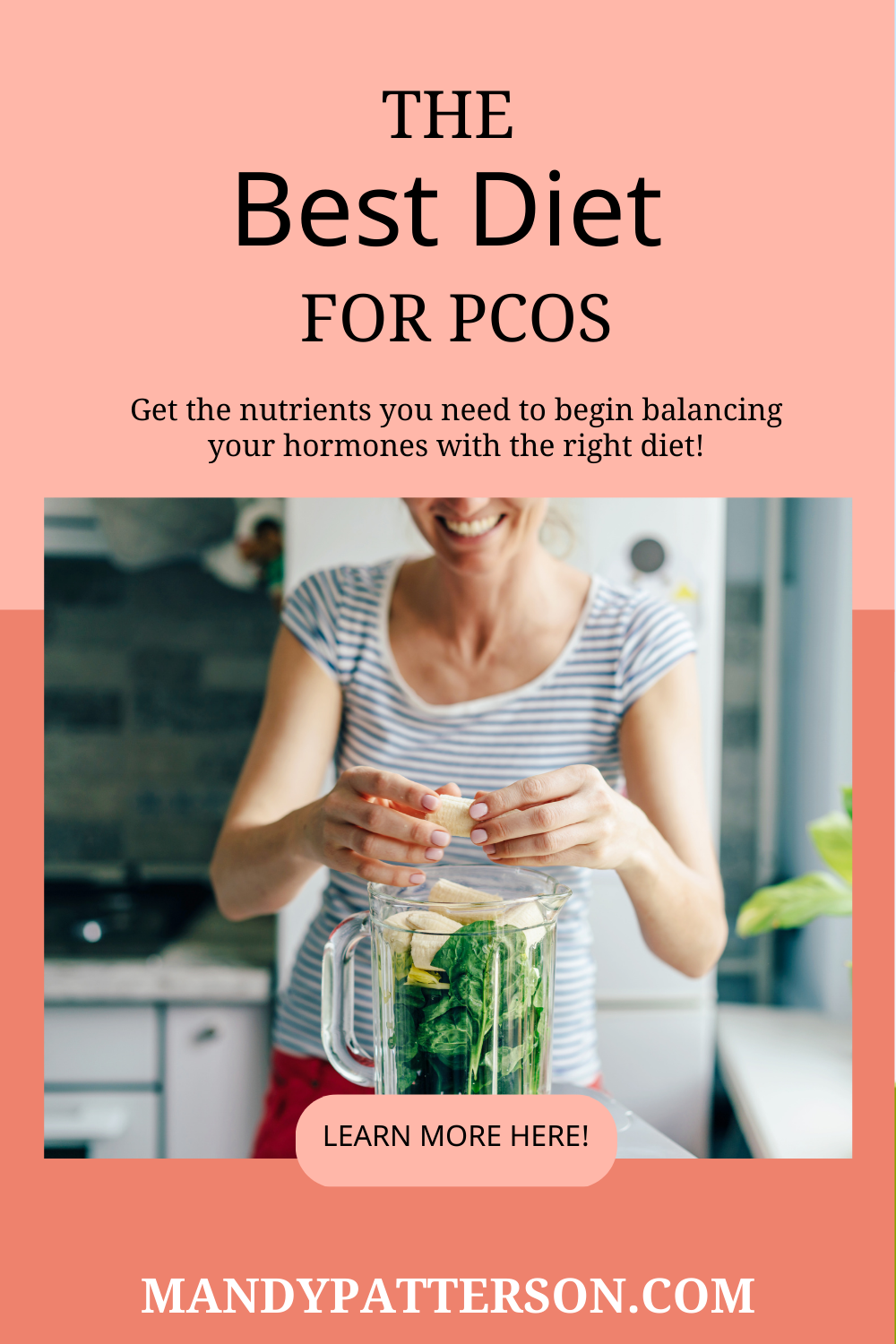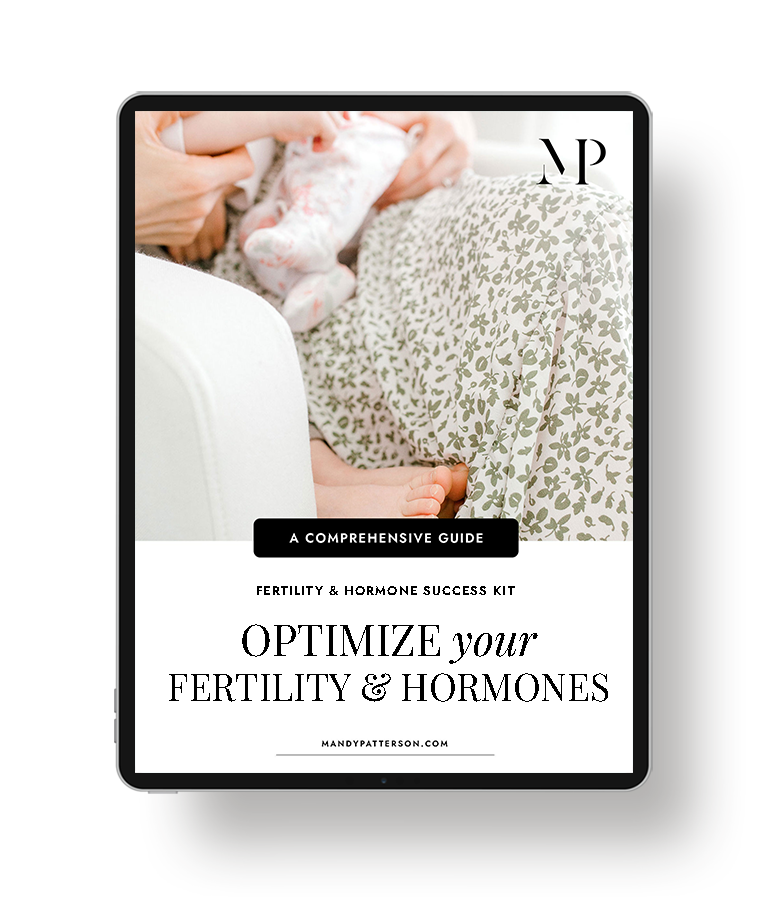Polycystic Ovary Syndrome (PCOS) is a hormonal disorder based on a collection of symptoms that affects females of reproductive age. Women diagnosed with PCOS are often given prescription medicine and birth control pills to manage their symptoms. However, these medications will only offer a partial solution to your symptoms.
When you delve deeper into the root cause of your PCOS, you will find that diet plays a huge role in how and why you have developed this condition. After all, food is the fuel that powers your body. When you fill up on bad fuel, the result is going to be a poorly functioning body. This article will cover the best diet for PCOS and tips for how to start implementing these dietary changes!
Keep reading if you want to learn how what you eat can drastically change your life!
What is PCOS?
Let’s start with a brief overview of PCOS. First, it is one of the most common conditions affecting reproductive-aged females.
In fact, it affects up to one in five young women and often leads to reproductive, metabolic, and psychological complications such as infertility, type 2 diabetes, and depression.
Common symptoms of PCOS include:
- Insulin resistance
- Increased risk of diabetes
- Weight gain
- Elevated cholesterol
- Fatty liver
- Acne
- Hirsutism (or excess hair growth on the face, stomach, and back)
- Alopecia (or loss of hair on the top of the scalp)
- Mood disorders such as anxiety and depression
- Anovulation (or the absence of ovulation)
- Difficulty conceiving
- Increased risk of pregnancy complications
There are four types of PCOS, or four root causes that lead to the development of PCOS symptoms.
- Insulin-resistant PCOS
Insulin-resistant PCOS is the most common type, affecting up to 70% of women with this syndrome. Insulin resistance occurs when the cells in the body resist or ignore the signal from insulin, a hormone that controls your body’s glucose or blood sugar level.
High insulin levels cause the ovaries to overproduce testosterone, leading to an excess of male hormones and PCOS-related complications.
- Inflammatory PCOS
Inflammatory PCOS is a condition in which chronic inflammation causes the ovaries to overproduce testosterone.
Inflammation plays a role in each type of PCOS, but it is the primary driver in inflammatory PCOS.
- Adrenal PCOS
In the case of adrenal PCOS, the adrenal gland will produce higher levels of androgen hormones, often due to an abnormal stress response.
While the ovaries are typically to blame for elevated androgens, an estimated 20 to 30 percent of women with PCOS have adrenal PCOS.
- Post-pill PCOS
Birth control pills are used to suppress ovulation. When you stop taking the pill, your body may experience what is called post-birth control syndrome.
The result is a whole host of unwanted hormonal imbalances, one such imbalance being post-pill PCOS.
Best Diet for PCOS
The best diet for PCOS is one that is full of nutrient-dense whole foods. In addition to specific herbs and supplements, a diet of whole foods is critical for women with PCOS. It will ensure you get the proper nutrients you need, as well as begin repairing any imbalances your body is suffering from.
Here are the specifics of the best diet for PCOS women.
Eat Organic
This way of eating will help you minimize the ingestion of pesticides and herbicides, many of which are endocrine-disrupting chemicals (EDCs). These chemicals can disrupt our body’s natural hormones, which can be even more problematic in women with PCOS.
Eat More Plants – Especially Cruciferous Vegetables
Plants are chock full of phytochemicals, antioxidants, and fiber. In fact, fiber has been shown to reduce body mass index (BMI) in women with PCOS. Aim to get 6-9 cups of veggies per day.
While that may sound like a lot, a green smoothie first thing in the morning is a great way to help you meet your vegetable intake goal.
While nearly all vegetables are beneficial for your health, cruciferous vegetables (cauliflower, kale, and cabbage) are true superfoods for your hormones. These vegetables contain a compound called indole-3-carbinol, which has been shown to promote estrogen detoxification.
Removing excess estrogen is important for women with PCOS because they often have excess estrogen in relation to progesterone.
Consume High-Quality Animal Protein
Try to eat pasture-raised, grass-fed, and organic meats when possible. This type of high-quality animal protein is much more nutrient-dense and contains fewer environmental toxins compared to its conventional counterparts.
Eat Healthy Fats
This may come as a surprise to you, but fat forms the backbone of all hormones! It is critical for reproductive health, ovulation, and menopausal health. Healthy fats include organic and unrefined oils such as avocado, coconut, and olive oil, as well as nuts and seeds, avocados, and olives.
You can also consume grass-fed sources of animal fats like butter, ghee, lard, and tallow. However, these are recommended in small quantities.
At all costs, try to avoid vegetable oils such as canola, soybean, and corn. These fats are extremely inflammatory.
Eliminate Refined Carbs and Eat Complex Carbs
Refined carbohydrates include things like pastries, pasta, pizza, bread, sodas, juices, and refined sugar. These foods will convert into sugar very quickly and create a large insulin spike in response.
Instead of eating refined carbohydrates, try to eat slow-burning carbohydrates instead. These complex carbohydrates take longer for your body to break down resulting in a reduced insulin spike.
Types of complex carbs include beans and legumes, whole grains such as quinoa and brown rice, root vegetables such as sweet potatoes and carrots, and nuts and seeds.
Eliminate Dairy and Gluten
This part of the PCOS diet is most likely the hardest to implement. Interestingly, not everyone with PCOS will need to eliminate dairy and gluten. However, for those who suffer from inflammatory and insulin-resistant PCOS, eliminating dairy and gluten will have a huge impact on your health.
Here’s the thing, dairy can also elicit a strong insulin response. For women with PCOS, it’s best to avoid dairy as much as possible to reduce the inflammatory response that is caused by high insulin spikes.
In terms of gluten, here are a few reasons to avoid gluten if you are a woman with PCOS. First, most wheat crops in the U.S. are covered with pesticides that contain EDCs. Second, gluten and wheat-derived foods are high in refined carbohydrates, which will continue to create large insulin spikes when consumed. Finally, gluten is tied to systemic inflammation, which is a phenomenon known as non-celiac gluten sensitivity (NCGS). This means it can worsen already existing chronic low-grade inflammation that is present in PCOS.
Tips for Implementing The PCOS Diet
Remember, the best PCOS diet is one that includes the above food groups. However, if you are struggling to implement this diet in your life, try the plate method.
Here are some tips for succeeding with the plate method:
- Fill ¼ of your plate with high-quality protein such as wild-caught oily fish, lentils, eggs, organic tofu, or pasture-raised, organic beef.
- Fill ½ of your plate with non-starchy vegetables like leafy greens, asparagus, cabbage, green beans, broccoli, Brussels sprouts, etc.
- Fill ¼ of your plate with complex starchy carbs like sweet potatoes, quinoa, brown rice, etc.
- Cook with 1-2 teaspoons of healthy fats and add more as toppings! Healthy fats include extra virgin olive oil, coconut oil, butter or ghee, nuts, avocados, and full-fat dairy.
Work with a Fertility Health Coach
If you need help healing from PCOS and want to learn more about the best diet for PCOS, schedule a free consultation here! As a Certified Holistic Health and Fertility coach, I’m your go-to girl for healing your hormones and getting your health back on track!

















